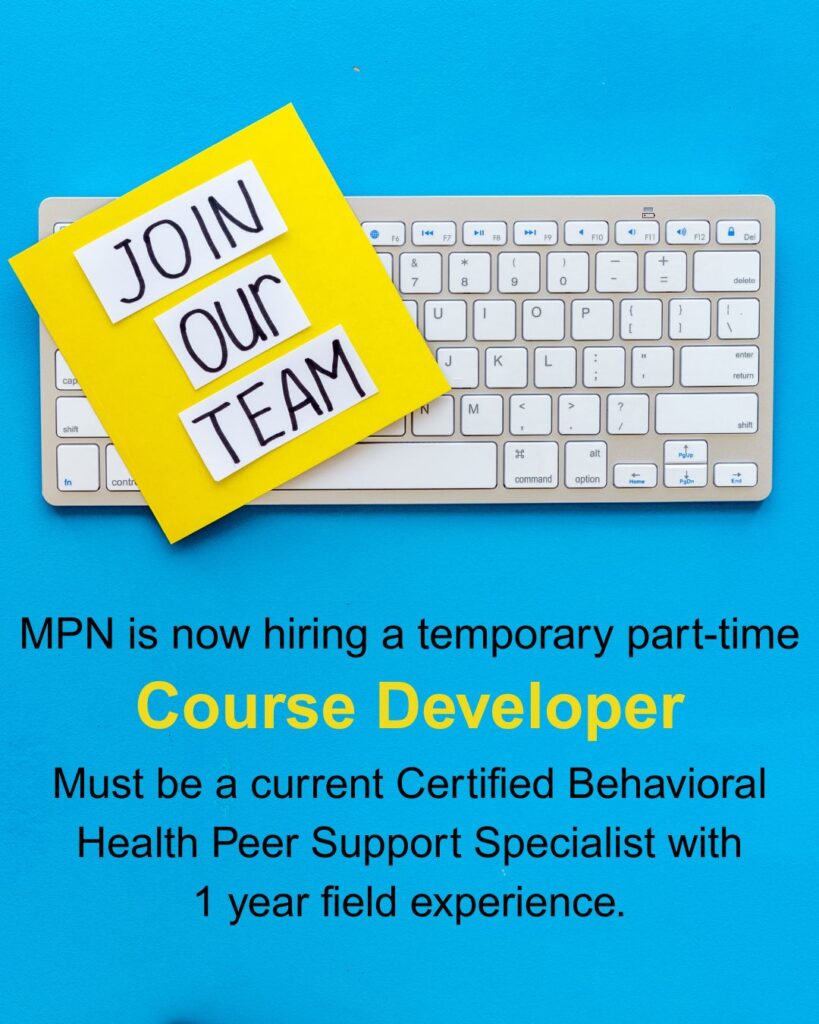We are a network of individuals who are on the path of recovery.
We identify as being in recovery from mental health, substance abuse and or addiction struggles. Together we share information, provide peer support, advocate with a united voice and improve the system. We come from places all across Montana, with different stories and experiences but together we make a difference. This is the Recovery Movement in Montana.



Realizing Recovery Blog
Intersectionality
Millions of people are affected by mental health issues and LGBTQIA+ youth and adults are especially affected. For example, the CDC reports that nearly 48% of LGBTQIA+ youth seriously considered suicide in the past year as compared to their non LGBTQIA+ counterparts. 39% of LGBTQIA+ adults rate their mental health as “fair” or “poor” while 16% of non LGBTQIA+ adult report the same. These disparities are often due to lack of support, discrimination, social rejection, and difficulty accessing care. Being LGBTQIA+ is not the risk factor in itself, the discrimination these people experience is.
Embracing Every Form of Resiliency
May is Mental Health Awareness Month, and for me, as someone who walks this path not only for myself but alongside others as a peer and family peer supporter, it’s more than just a calendar observance. It’s a heartfelt invitation. It’s a chance to shine a light on mental well-being, reduce stigma, and encourage real, meaningful conversations about what it means to live with, and rise through, mental health challenges.
But beyond awareness, this month is also a celebration of something that’s often overlooked in clinical discussions: resilience. Real-life, hard-earned, deeply human resilience. I see it every day. In my own life, in the families I support, and in the courageous individuals I walk beside. In a world that constantly demands more, the ability to care for ourselves and each other, to bounce back, to try again, that’s nothing short of heroic in my eyes.
Awareness into Action
Reposted from Mental Health America’s Mental Health Month 2025 Planning Guide While one in five people experience a mental health condition each year, every single one of us has a mind to take care of. Furthermore, mental health is not just a personal issue—it’s a societal one. And the need for action has never been greater.This…
Mental Health Services Uncertain
May is Mental Health Awareness Month. At least for now. I say that because with all of the federal changes one never knows. What the Department of Government Efficiency will deem inefficient is anyone’s guess. May was first established as mental health awareness month in 1949 by Mental Health America (https://mhanational.org/) the oldest mental health advocacy organization in the United States. You can take a number of mental health screenings for free on their website. They also have resources for further support. Now more than ever mental health advocates need to work to bring awareness to the importance of mental wellbeing.
Daylight Savings Time, More Than Changing Our Clocks
March is daylight savings time when we turn our clocks ahead and gain an extra hour of daylight in the evenings. People look forward to this day all winter. But for some this change can be hard. Turning our clocks ahead means getting up in the dark. It takes our bodies time to adjust to losing an hour of sleep and getting up an hour earlier. Daylight savings time has caused me to think about change in general and how there are always upsides and downsides to change.
The Power of Kindness
Acts of kindness are often seen as simple gestures, yet their impact on mental health can be profound. Whether it’s offering a smile to a stranger, helping a coworker, or volunteering for a cause, kindness can create a ripple effect that benefits both the giver and the recipient. Research has consistently shown that engaging in acts of kindness boosts mental well-being, reducing stress, increasing happiness, and fostering a sense of belonging.
“Creating safe places creates a healing culture!”
I write this blog for the first annual Substance Use Disorder Treatment Month (Treatment Month). SAMHSA recently announced that January 2025 would be the launch of Treatment Month. According to SAMHSA “this serves to support: people contemplating or seeking help for substance use, practitioners treating or considering treating substance use disorder, friends, family and loved ones of people with substance use conditions; by raising awareness of treatment. SAMHSA seeks to: eliminate stigma surrounding treatment, including medications used to treat substance use disorders, encourage those on their treatment and recovery journey, and promote best practices such as screening, intervention, and treatment of substance use disorders by health care professionals.
Reading and the Impact on Wellness
January 3rd was JRR Tolkien’s birthday. He wrote many books but the ones that I am the most familiar with are The Hobbit and The Lord of the Rings Trilogy. Although Tolkien died before I was born, I knew his name by Kindergarten. My father began reading The Hobbit to me at night before bed when I was 5. He went on to read me The Lord of the Rings Trilogy. The main character in the Hobbit, Bilbo Baggins, went on a great adventure with a group of dwarves and a wizard to fight a dragon and came across a magic ring that made him disappear. Tolkien’s characters were always finding themselves in trouble, whether it was with trolls or spiders or other enemies. My favorite part is when they escape in wine barrels and tossed into the river to float downstream to a nearby town. My dad actually read all the books twice to me over many years. He loved the books and knew every character and even sang the songs that were written throughout. Since it took us so long to read through each book and then begin again, I couldn’t tell if he knew the tune of the songs or made them up, creating different versions each time he sang them. I loved the stories too, but mostly I loved spending time with my dad.
Reflecting on the Past Year
Reflecting on mental health accomplishments can be an empowering and enlightening exercise. It not only allows you to see how far you’ve come but also provides motivation for continued growth. Here’s a guide to help you recognize and celebrate your mental health milestones over the last year and set a positive tone for the future.
Crow Dog
The United States has the highest incarceration and recidivism rates in the world. Our criminal legal system often causes more harm than good. Yet, we continue to believe this is the best way to address crime in our country. Why do we do this? As a society we have never been shown any other way, so we don’t realize that there are other options aside from punitive measures, such as incarceration. Restorative Justice is just one of the many ways that we can work to better implement justice and to get rid of the inequities that exist within our criminal legal system. Restorative Justice is an Indigenous principal of holding people accountable for a harm they have caused by promoting healing and restoration for the entire community as a whole. When a harm is caused, there are more people affected than just the victim and the offender. Friends, family, neighbors, innocent bystanders, coworkers and whole communities may be affected by the harm caused.
Advocacy
Check out our new page dedicated to tracking state and federal bills, executive orders, and lawsuits.
 Standing up for what we believe is right, having a voice, making choices in recovery, and sharing our own recovery story are some of the things that make up advocacy and self-advocacy.
Standing up for what we believe is right, having a voice, making choices in recovery, and sharing our own recovery story are some of the things that make up advocacy and self-advocacy.
Let’s start with self-advocacy which refers to an individual’s ability to effectively communicate, convey, negotiate, or assert his/her own interests, desires, needs, or rights. It involves making informed decisions and taking responsibility for those decisions (Van Reusen et al., 1994).
Knowing yourself and your strengths, needs, and interests is the first step toward advocating for your rights. Once we begin to find our way on the path of recovery, we may want to begin to advocate for ourselves with those around us—peer supporters, friends, family, service providers, and doctors. These conversations may be difficult, but having them is vital to your recovery. Remember, you are the expert on yourself.
It may be that prior to getting on the path to recovery, others were making decisions for you or acting in what they believed to be your best interest. Now may be the time for you to let others know what you believe to be in your best interest. You may find yourself in the process of taking control and making decisions affecting your life and perhaps others’ lives. This process of self-determination means making informed choices, problem solving, setting and attaining goals—essentially being a self-advocate.
Advocacy or advocating for others may be something you are interested in doing. Advocating for another person isn’t about acting in a person’s perceived best interest, but it is standing with a person to ensure they are able to articulate and obtain what they want or need. Perhaps you may consider speaking up and advocating for various changes in the services in your community.
Here are a few examples of advocacy:
- Speak to your legislature or a special committee.
- Get involved with an advocacy group or organization.
- Share your recovery story to support others in recovery.
- Whether advocating for yourself, for others, for your community, or as part of an organization, advocacy is very self-empowering. You can make a real difference in your life, the lives of others, and even the community.
- Reach out to Montana’s Peer Network and share your recovery story on one of our “Recovery Talks” podcasts.
Advancing Advocacy Blog
Dehumanization of Vulnerable Populations
As people in recovery, we know that forcing people to comply with specific types of treatment rarely works. Treatment courts often have incredibly high “success” while people are in the program but those successes drop dramatically when there is no longer the threat of incarceration. Effective, long term recovery must be freely chosen and individualized. I wrote about this back in August but it is in the forefront of my mind again because of some statements made by a candidate for city commission in Great Falls.
Peer Support Advocacy Needed
As we head into the last quarter of 2025. There are ample opportunities to advocate for peer support. The Montana legislature wrapped up in the spring after passing the Family Peer Support certification bill. MPN and our sister organization Family Peers for Hope worked hard on rule recommendations to the Board of Behavioral health. We expect the public comment period to open any time now with proposed rules for certification of Family Peer Supporters. This provides us with a platform for advocacy and shaping of the new profession. In the Senate, yes, we know the Federal Government is in shutdown mode, but when they return before they go back on vacation for the winter break Senate bill 1132 includes a provision for family peer support as a service for family caregivers. This needs advocacy to further develop family support.




